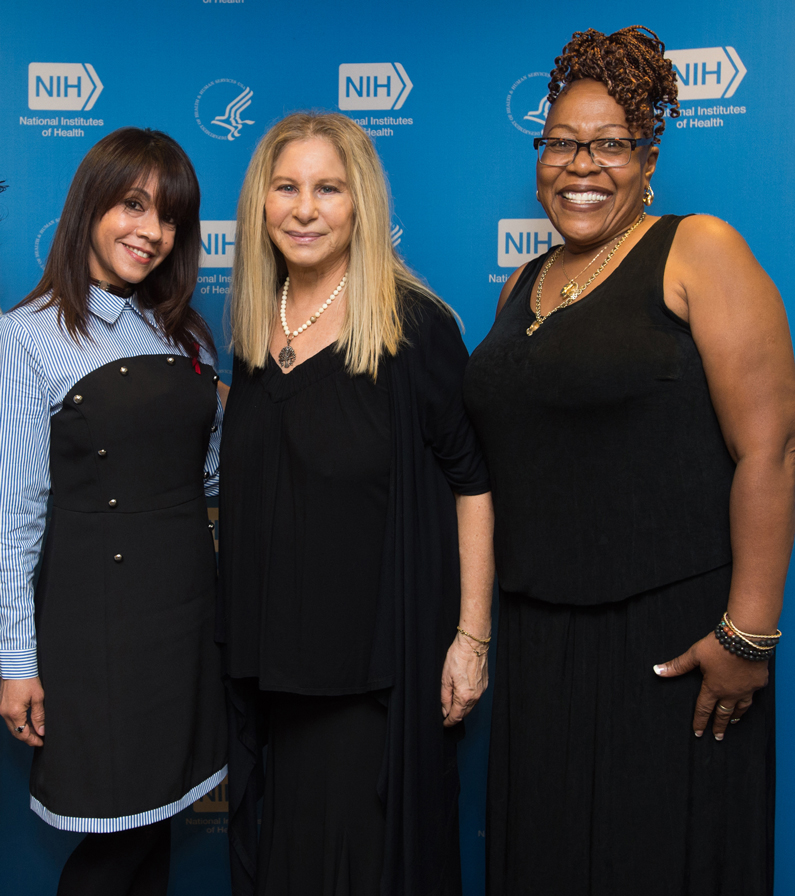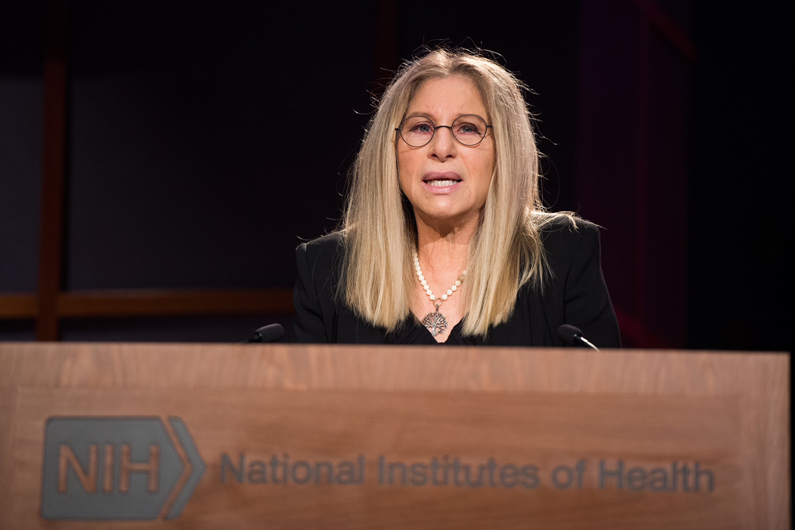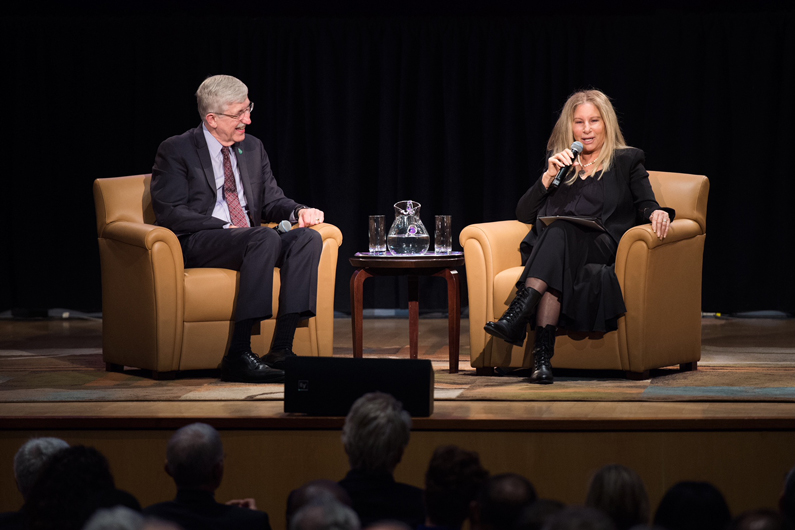Words into action – Barbra Streisand visits NIH to speak about her support and involvement with women's heart health
"Keep asking the questions and sharing the answers. Nothings impossible. Make it happen."


On May 15, the 2018 J. Edward Rall Cultural lecture brought vocalist, actress/producer and cultural icon Barbra Streisand to NIH to speak about her interest and activism in women's heart health. Her attention was initially drawn to this issue after reading a 1991 New England Journal of Medicine editorial by former NIH Director Bernadine Healy, "The Yentl Syndrome." The journal article referenced the film that Streisand directed and produced called ‘Yentl', in which a young girl has to be disguised as a boy to receive an education. The editorial detailed wide discrepancies and differences in cardiovascular care received by women when compared to the standard of care received by men.
"Women are half the population – we're indispensable to everything that matters most," Streisand said. "We have different equipment, we have different plumbing."
In 2008, Streisand became directly involved by partially funding the Women's Heart Center at Cedar Sinai Medical Center in Los Angeles that was later named for her. In 2014, she co-founded the Women's Heart Alliance, a nonprofit organization advocating for increased and improved research and treatment for women's cardiovascular health and learning more about sex specific differences. The Women's Heart Alliance has supported NIH research and has also partnered with NIH to improve the heart health of HIV positive women.
In her speech and subsequent interview with Dr. Francis Collins, NIH director, she described her interest in gender equality, which began with the film industry, but broadened into her presence as a high-profile, active ally in an area affecting all women – heart and cardiovascular health.
"Scientists and artists have much in common," Streisand said. "We're both obsessed with the quest for beauty, understanding and truth. We're both seeking answers to the big questions about causes and consequences, how's and whys, origins and endings, life and death. We both see magic in the smallest details. A film cell or stem cell. We both know the joy of the eureka moment and the agony of the dead end. What links our two communities is the focus on what it means to be human. Our life's work, our passion, our purposes is improving and uplifting humanity."
The annual cultural lecture, part of the Wednesday Afternoon Lecture Series, honors the memory of J. Edward Rall, founder of the Clinical Endocrinology Branch (now within the National Institute of Diabetes and Digestive and Kidney Diseases) and the first Deputy Director for Intramural Research. He recommended in 1984 that NIH add a cultural lecture to its Director's Lecture series.
View a transcript of Streisand's speech.
